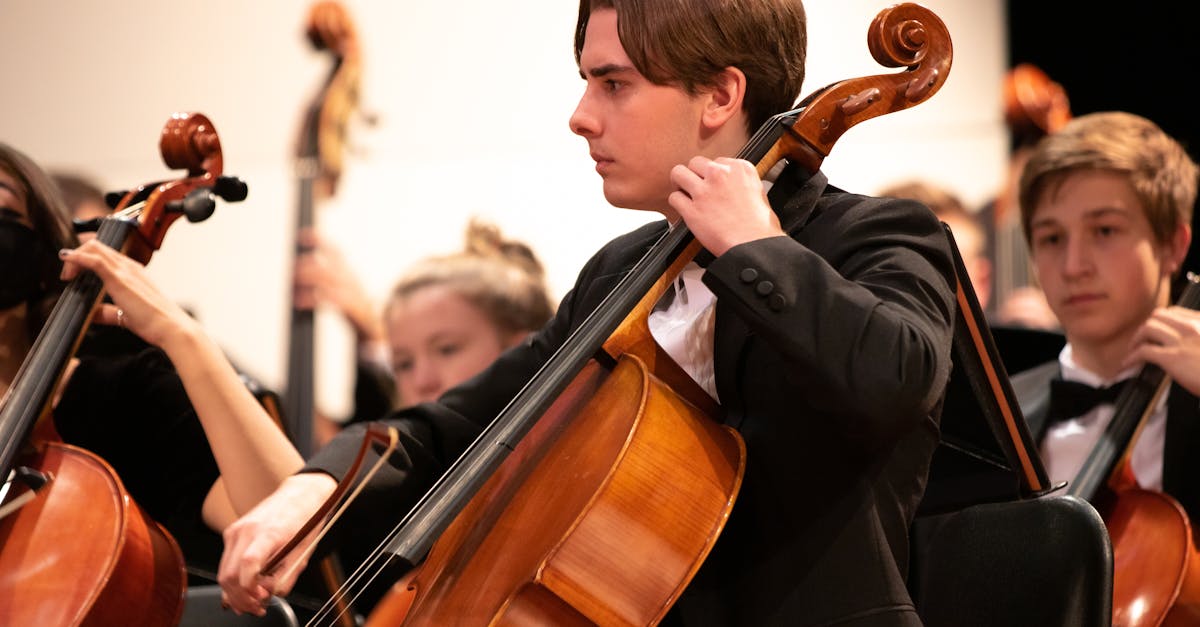The Healthy Harmony Melodies Of Wellness
Introduction
In the intricate world of wellness, music serves as a powerful tool to foster mental and physical health. The harmonious interplay between rhythm and melody transcends cultural barriers, offering a universal language of connection and healing. Today, researchers and wellness enthusiasts alike understand the profound impact of music on well-being. From reducing stress levels to enhancing focus, music plays an essential role in achieving a balanced lifestyle. In this article, we explore the significance of "Healthy Harmony: Melodies of Wellness," delving into how music nurtures different aspects of our lives. Join us as we uncover how embracing musical therapy could leave lasting positive effects.
Advertisement
The Science of Music and Health
Scientific studies have shown that music is more than just entertainment - it can be a viable therapeutic tool. The vibrations and frequencies in music can stimulate specific brain regions, influencing cognitive functions and emotional states. Researchers note that when individuals listen to their preferred music, there can be an increase in dopamine release, leading to feelings of pleasure. Additionally, music has been found to lower cortisol levels, which subsequently reduces stress and anxiety. The positive effects extend to improving memory and enhancing creative thinking, making music an integral part of healthy living.
Advertisement
Enhancing Emotional Well-being
Music profoundly impacts emotions, making it a staple in managing mental health. People often turn to music during emotional strife or joy, finding that it amplifies both expressions. Therapeutic musical interventions can help individuals express emotions they find challenging to articulate with words. Relaxing tunes, in particular, are popular in wellness practices like yoga and meditation. These soothing sounds can enhance inner peace and mindfulness, helping individuals achieve emotional stability. Melodic improvisations are also used in therapeutic settings to facilitate emotional release and exploration.
Advertisement
Music Therapy in Healthcare
Music therapy has gained significant recognition in modern healthcare practices. Certified music therapists employ structured musical interventions to aid individuals dealing with illnesses and disabilities. In hospitals, music therapy assists in pain management and supports patients undergoing rigorous treatments. For children with developmental disorders, music therapy offers an interactive platform for improving communication and social skills. Elderly individuals with Alzheimer’s disease have also shown improved cognitive functions and reduced agitation. These health benefits underscore the importance of integrating music-based approaches in conventional health care.
Advertisement
The Power of Melody in Physical Health
The physical benefits of music are undeniable; it is often used to boost motivation during exercise sessions. Upbeat tunes can energize a run or workout, making physical activity more enjoyable. Music aids in regulating the runner's pace and enhances performance efficacy. Furthermore, therapeutic music can aid in the rehabilitation of motor skills, benefiting those recovering from injuries. Rhythmic and coordinated movements, known as rhythmic auditory stimulation, leverage music to promote physical rehabilitation, demonstrating the diverse applications of musical interventions in physical health.
Advertisement
Creating Balance with Nature Sounds
Incorporating natural sounds into musical therapy can foster profound tranquility. Many find solace in music imbued with the sounds of chirping birds, rustling leaves, or flowing water. These ambient tracks connect listeners to nature, evoking a sense of peace akin to forest bathing. Such sounds can also serve as sleep aids, helping combat insomnia and increasing sleep quality. By listening to nature-inspired melodies, individuals can cultivate a unique symbiosis between music and their surroundings, creating an encompassing sense of balance and well-being.
Advertisement
Cultural and Societal Impacts of Music
Music transcends cultural barriers, serving as a bridge that unites individuals from diverse backgrounds. Musical traditions enrich societal customs and shared experiences, encouraging communal cohesion. From attending concerts to participating in local drum circles, music brings communities together, fostering inclusivity. The therapeutic applications of music in community settings highlight its importance beyond personal benefits. Music initiatives, like cultural gatherings and music festivals, emphasize its role in enhancing cooperative spirit and social solidarity.
Advertisement
Customized Soundscapes for Personal Growth
Adopting personalized soundscapes can be a transformative step in personal development. Tailoring music playlists to reflect personal goals can inspire change and motivate growth. By carefully selecting tracks that resonate with one's objectives, individuals can create a soundtrack to their life journey. This curated soundscape becomes a backdrop to everyday experiences, encouraging a deeper connection with one's inner self. As a tool for reflection, it facilitates self-discovery and amplifies personal milestones, creating a dynamic narrative of growth and wellness.
Advertisement
Integrating Music in Modern Wellness Practices
Wellness centers and retreats are increasingly incorporating music into their offerings to enhance holistic experiences. These immersive musical retreats often combine sound baths, meditation, and guided listening sessions. Practitioners recognize that music can deepen relaxation and increase the effectiveness of wellness activities. On a practical level, individuals are encouraged to integrate music into daily routines, using it as a resource for stress reduction, relaxation, and start-of-day boosting. The versatile nature of music ensures its adaptability to various modern wellness practices, highlighting its indispensable role in current health and wellness trends.
Advertisement
Conclusion
The journey through "Healthy Harmony: Melodies of Wellness" highlights the transformative power of music in achieving holistic health. Music influences emotional, cognitive, and physical states, offering a multifaceted therapeutic tool for well-being. Whether it's to foster emotional balance, support physical recovery, or enhance communal bonds, music's versatility ensures it's cherished worldwide. As societies advance, the integration of music into wellness practices continues to evolve, opening new avenues for personal and social growth. Ultimately, embracing the melodies of wellness ensures that music remains an essential companion on the path to a harmonious life.
Advertisement

